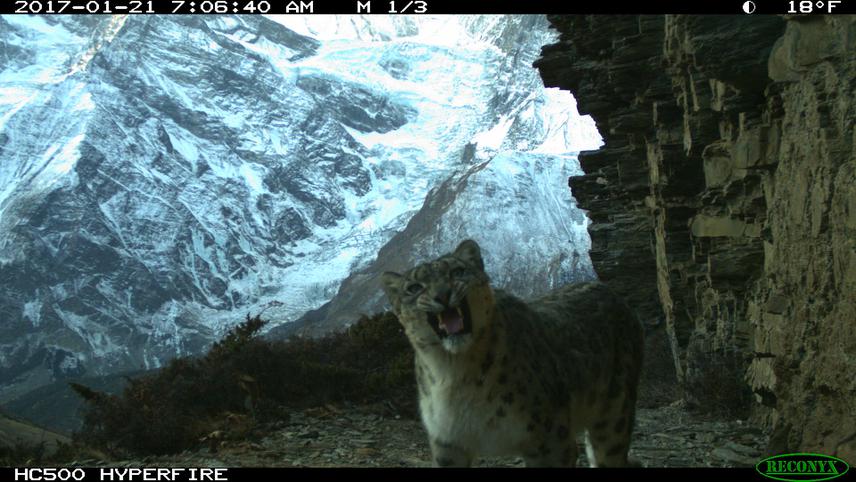Ganesh Puri
Other projects
23 Feb 2017
Developing Radio Programs for Mass Media Awareness about Endangered Snow Leopard in the Eastern Himalayas of Nepal
25 Oct 2023
The Fish Bank Project: Transforming Fishing Cat and Fish-Farmers Conflict into Conservation
The proposed project aims at assessing levels of conflict between snow leopard and herders in Dhorpatan Hunting Reserve (DHR), an essential toward understanding conflict intensities and designing measures to promote co-existence.

Snow leopard in Manang. ©Tashi R. (GhaleGlobal Primate Network Nepal).
The project will assess the herder-snow leopard conflict and its underlying causes so that low cost and predator-friendly mitigation measures can be strategically applied to reduce conflicts and promote coexistence in Dhorpatan Hunting Reserve (DHR). A highly participatory workshop will be held nearby the project site to interact with the local communities, herders and related stakeholders. This workshop will facilitate rapid assessment of the areas providing insight into attitudes of local people towards wildlife and snow leopard in particular. The workshop and participant conclusions will focus the project’s activities throughout the project period on key issues vital to sustained outcomes.
Interviews will be conducted with 200-300 randomly selected household heads living and grazing close to the snow leopard habitat in DHR. The interview will be delivered in Nepali language. To validate the reliability of information, cross-validation will be done with the neighbouring households. Likert scale will be used for interview questions to rank the peoples’ perceptions and attitudes towards snow leopard and other predators in the study area. The interview surveys with key-informants i.e. local herders will provide the approximate economic losses of each household from snow leopards and other predators like wolves. Such interviews and interactions with the local herders also help to map and prioritize the livestock depredation hotspots in the area for targeting nonlethal and predator-friendly devices like foxlights, safe corrals and conservation education in schools. In this way, the project will contribute in conservation planning and promoting co-existence between local herders and predators in and around DHR.